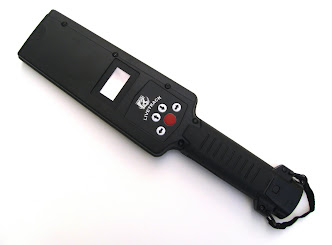Tips to Protect Horses, Livestock from Wildfire
Horse owners and ranchers can take precautions to reduce the risk and spread of wildfire and protect their animals from injury or death by fire, said Texas AgriLife agents.
"The most important thing to remember is to have a fire plan in place," said Rick Machen, Texas AgriLife Extension Service livestock specialist in Uvalde. "You'll have a limited time to react when a wildfire hits, so you'll need to be prepared and practiced for it."
The plan should include how to access and transport livestock that might be in danger, he said.
"Make sure you have keys to padlocks and can get easy access to every gate on the perimeter fence," Machen said.
If there's a wildfire, farmers and horse owners need to know in advance what their priorities are, he noted. "Sometimes firefighters will ask which they should save first--a structure, livestock, machinery or feed," he said.
If you have time to evacuate livestock, proceed with caution, he said, as some animals might refuse to leave and others might run back into a burning barn or building.
"Close gates that give livestock access to dangerous or soon-to-be dangerous areas," Machen said. "When evacuating the animals, be sure to keep them from going into areas where they might become trapped or have a limited chance of escape."
Livestock are frequently injured or killed by running into fences, barriers, and other obstructions while trying to flee, he added. Having the right equipment and experienced handlers to move livestock is important, but if time is of the essence it might be necessary to release the animals and recapture them later.
All farm and ranch family members and workers should be on the lookout for potential fire hazards and know how to respond in case of a fire, added Bruce Lesikar, AgriLife Extension agricultural engineer.
Lesikar said some basic safety precautions should include installing and maintaining smoke detectors in barns and buildings, placing fire extinguishers in barns, vehicles, and tractors, and posting emergency numbers in a central location near a telephone.
"To help prevent or feed a fire, store fuels, pesticides, and other chemicals away from heat sources and combustible materials," he said. "If there's a wildfire, these should be removed from the premises."
He added that trash, hay, lumber, empty feed sacks, and other flammable materials should be kept away from barns and buildings.
Firebreaks or fireguards are another useful tool in helping prevent the spread of wildfire, noted Wayne Hanselka, an AgriLife Extension program leader for rangeland ecology management based in Corpus Christi.
"As their names indicate, these are designed to keep fire in or out of a pasture," Hanselka said. "Cleared firebreaks must extend to bare ground or mineral soil with no line of continuous dead fuel that allows the fire to creep across the fire line."
Source: TheHorse.com read the full article here.














0 comments:
Post a Comment